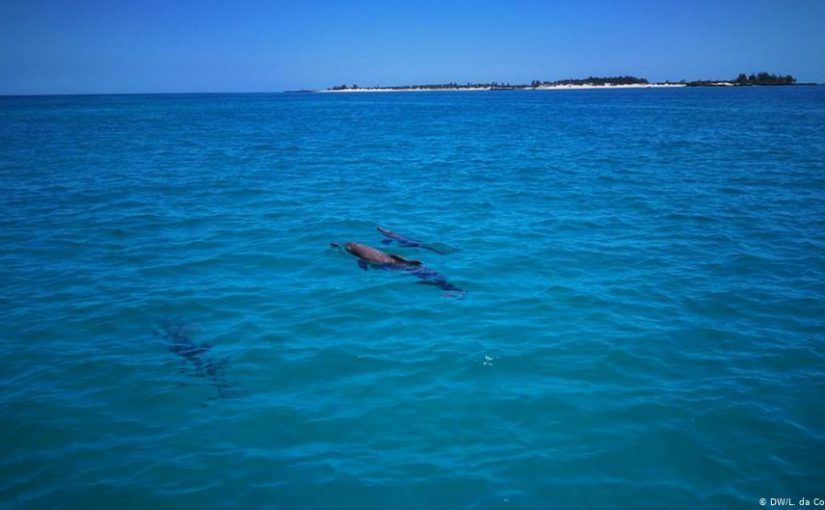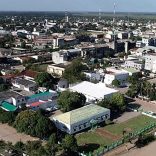Mozambique: Aluminium export revenues nearly double YoY in Q1, reaching US$380.7 million
Natural resource projects threaten Bazaruto Park

File photo: DW
Tour operators and residents are calling for the suspension of heavy sands, gas and oil projects in order to protect Bazaruto Park. Government says it has not yet issued any exploitation licence.
Residents and tour operators in northern Inhambane province are complaining about the destruction of the marine ecosystem.

Yassine Amugy, president of the Vilankulo Tourism Association, says dolphin deaths have been occurring since 2008, when the South African multinational Sasol allegedly began an unauthorised search for oil.
“In October, we had 22 dolphins [dead]. This trend of losing animals [is spiralling] out of control,” he says.
Environmental impact and breach of law
A little over ten years later, during the public hearing in early July this year, the project presented by Sasol was rejected by the residents, who pointed out negative impacts for the future of the environment.
That is why Yassine Amugy calls on the authorities not to approve the project, saying that the message of preserving the ecosystem has already been delivered.
According to Amugy, São Sebastião Island, in Bazaruto National Park, has already been handed over to a Chinese company for the exploitation of heavy sands.
Mozambique’s Centre for Public Integrity (CIP) has pledged to join the population to defend the region.
Nelson Alfredo, a spokesman for Centro Terra Viva, an NGO committed to protecting the environment, says that companies and the government are breaking the law, and warns that this could result in devastation of the ecosystem in the future.
“It is forbidden to conduct research in conservation areas. It breaks Mozambican legislation. If a project of this nature moves forward, the consequences will be devastating,” Alfredo warns.
Licenses not granted
But according to the government, no company has been licensed for either oil and heavy sands exploration in Bazaruto National Park.
Provincial Director of Mineral Resources and Energy in Inhambane Salomão Mujoi says that only after companies have received licenses can they them carry out Environmental Impact Assessment studies necessary to obtain exploitation rights. “First, mitigation measures will be identified in order to then move on to the exploitation phase,” he explains.
DW Africa tried to interview Sasol regarding the accusations, but the company declined to comment.












Leave a Reply
Be the First to Comment!
You must be logged in to post a comment.
You must be logged in to post a comment.